Part of the MIT Climate Action Plan
MIT Climate Symposia: Symposium Two
Challenges of Climate Policy
October 29, 2019
Chair: Richard Schmalensee, Howard W. Johnson Professor of Management and Professor of Economics Emeritus, MIT Sloan School of Management
The second of MIT’s six Climate Action Symposia, Challenges of Climate Policy, was held on Tuesday, October 29, 2019. Topics included:
- societal impacts and policy challenges of climate change;
- adaptations that could limit economic damages and national security risks; and
- potential solutions to overcome domestic and international political hurdles for addressing climate change and reducing greenhouse gas emissions.
Schedule
4:00-4:05 pm
Introduction
Richard Schmalensee, MIT
4:05-4:50 pm
Risks and Damages
Maximilian Auffhammer, UC Berkeley
Kathleen Hicks, Center for Strategic and International Studies
Audience Q&A
4:55-5:45 pm
Adaptation
Susanne Moser, Moser Research & Consulting
Andrew Steer, World Resources Institute CEO
Audience Q&A
5:50-7:00 pm
The Politics of Mitigation
Stephen Ansolabehere, Harvard
Henry D. Jacoby, MIT
Leah Stokes, UC Santa Barbara
Audience Q&A
Speakers
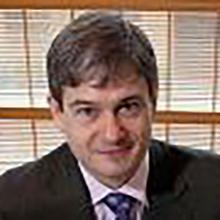
Stephen Ansolabehere is the Frank G. Thompson Professor of Government at Harvard University. He is an expert in public opinion and elections and has published extensively on mass media, representation, and political economy—especially concerning energy and the environment. He is the author of five books: Cheap and Clean, The Media Game, Going Negative, American Government, and The End of Inequality. He is a Carnegie Scholar (2000), a Hoover National Fellow (1994), and Truman Scholar (1982), and was inducted into the American Academy of Arts and Sciences in 2007. He directed the Caltech/MIT Voting Technology Project from its founding in 2000 through 2004; is a member of the Board of Overseers of the Reuters Institute of Journalism at Oxford University; and consults for CBS News Election Decision Desk. He is the director of the Center for American Political Studies at Harvard, as well as principal investigator of the Cooperative Congressional Election Study; a collaborative effort of over 60 universities and colleges in the United States.
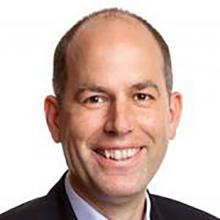
Maximilian Auffhammer is the George Pardee Jr. Professor of International Sustainable Development and associate dean in the Division of Social Sciences at UC Berkeley. Professor Auffhammer received his BS in environmental science in 1996 and M.S. in environmental and resource economics in 1998, both from the University of Massachusetts at Amherst, and a PhD in economics from UC San Diego in 2003. He joined the faculty at UC Berkeley in 2003. His research focuses on environmental and resource economics, energy economics, and applied econometrics. He is a research associate at the National Bureau of Economic Research in the Energy and Environmental Economics group, a Humboldt Fellow, and a lead author for the Intergovernmental Panel on Climate Change (IPCC). His research has appeared in The American Economic Review, The Review of Economic Studies, The Review of Economics and Statistics, The Economic Journal, the Proceedings of the National Academies of Sciences, the Journal of Environmental Economics and Management, The Energy Journal, and other academic journals. Professor Auffhammer is the recipient of the 2017 Cheit Teaching Award in the Haas School of Business, the 2009 Campus Distinguished Teaching Award, the 2007 Cozzarelli Prize awarded by the National Academies of Sciences, and the 2007 Sarlo Distinguished Mentoring Award.
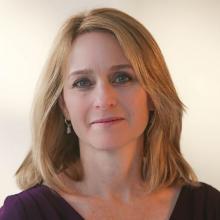
Kathleen Hicks is senior vice president, Henry A. Kissinger Chair, and director of the International Security Program at the Center for Strategic and International Studies (CSIS). Hicks is a frequent writer and lecturer on geopolitics, national security, and defense matters. She served in the Obama Administration as the principal deputy undersecretary of defense for policy and the deputy undersecretary of defense for strategy, plans, and forces. From 2006 to 2009, Hicks was a senior fellow in CSIS’s international security program. Prior to that, she spent almost thirteen years as a career official in the Office of the Secretary of Defense, rising from Presidential Management Intern to the Senior Executive Service.
Hicks is also the Donald Marron Scholar at the Kissinger Center for Global Affairs, Johns Hopkins School of Advanced International Studies. She serves on the Boards of Advisors for the Truman Center and SoldierStrong, and is a member of the Council on Foreign Relations. She holds a PhD in political science from MIT, an MPA from the University of Maryland, and an AB magna cum laude from Mount Holyoke College.
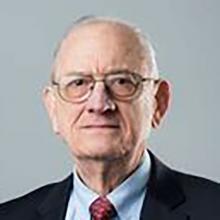
Henry D. Jacoby is Professor Emeritus of Management, a Professor of Organization Studies, and Dean Emeritus at the MIT Sloan School of Management and a founding co-director of the MIT Joint Program on the Science and Policy of Global Change, which is focused on the integration of the natural and social sciences and policy analysis in application to the threat of global climate change. An undergraduate mechanical engineer at the University of Texas at Austin, he holds a PhD in economics from Harvard University where he also served on the faculties of the Department of Economics and the Kennedy School of Government. He has been director of the Harvard Environmental Systems Program, director of the MIT Center for Energy and Environmental Policy Research, associate director of the MIT Energy Laboratory, and chair of the MIT Faculty. He currently serves on a U.S. National Academies Committee to Advise the U.S. Global Change Research Program.
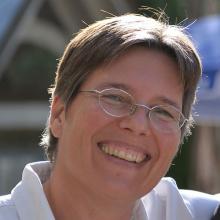
Susanne Moser, PhD, is director of Susanne Moser Research & Consulting in Hadley, Massachusetts. She is also research faculty at the Environmental Studies Department at Antioch University New England and affiliated faculty at the Department of Landscape Architecture and Regional Planning, University of Massachusetts Amherst.
Moser’s work focuses on adaptation to climate change, vulnerability, resilience, climate change communication, social change, decision support, and the interaction between scientists, policymakers, and the public. She is a geographer by training (PhD 1997, Clark University) with an interest in how social science can inform society's responses to this global challenge. She has worked in coastal areas, urban and rural communities, and with forest-reliant communities; as well as on human health issues.
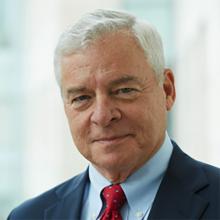
Richard Schmalensee served as the John C Head III Dean of the MIT Sloan School of Management from 1998 through 2007. He was a member of the President's Council of Economic Advisers from 1989 through 1991 and served for 12 years as director of the MIT Center for Energy and Environmental Policy Research.
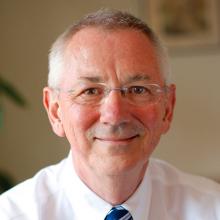
Andrew Steer is the president and CEO of the World Resources Institute, a global research-into-action organization dedicated to promoting economic development while protecting the natural environment.
Steer joined WRI from the World Bank, where he served as Special Envoy for Climate Change from 2010 to 2012. From 2007 to 2010, he served as director general at the UK Department of International Development (DFID) in London. This followed 10 years in East Asia, where he was Head of the World Bank in Vietnam and Indonesia.
In earlier years, Steer was director of environment and social policy at the World Bank, chief of the Bank’s Country Risk Division, chief author of the 1992 World Development Report on Environment and Development, and taught economics at Cambridge University. He has written widely on the links between the economy and the natural environment.
Steer is a global agenda trustee for the World Economic Forum, a commissioner of the Global Commission on Adaptation and of the Energy Transitions Commission, and a member of the China Council for International Cooperation on Environment and Development (CCICED) and advisory groups of Bank of America and IKEA.
Steer was educated at St. Andrews University, the University of Pennsylvania, and Cambridge University. He has a PhD in international economics and finance.
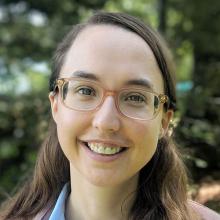
Leah Stokes is assistant professor in the Department of Political Science and affiliated with the Bren School of Environmental Science and Management and the Environmental Studies Department at the University of California, Santa Barbara (UCSB).
She works on energy, climate, and environmental politics. Within environmental politics, Professor Stokes researches climate change, renewable energy, water, and chemicals policy.
Professor Stokes completed her PhD in public policy in the Department of Urban Studies and Planning’s Environmental Policy & Planning group at MIT. She also received a Masters from MIT's Political Science Department. Before that, Professor Stokes completed an MPA in environmental science and policy at the School of International & Public Affairs (SIPA) and the Earth Institute at Columbia University. She also has a BSc in psychology and East Asian studies from the University of Toronto. Prior to academia, Professor Stokes worked at the Parliament of Canada and Resources for the Future.


